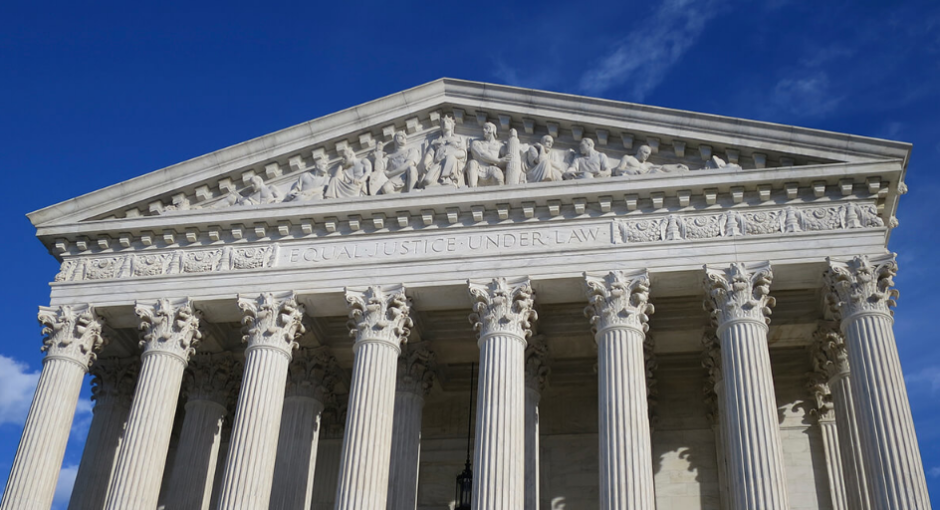The clerk of the U.S. Supreme Court on Monday formally notified the clerk of a federal appeals court in Washington, D.C., and lawyers for three hospital groups and three health systems of the high court’s June 15 judgement in the groups and health systems’ favor in their lawsuit challenging deep cuts in Medicare Part B reimbursement for hospitals’ 340B-purchased drugs.
The Supreme Court’s July 18 transmittals to the U.S. Court of Appeals for the District of Columbia Circuit and lawyers for American Hospital Association, America’s Essential Hospitals, Association of American Medical Colleges, Northern Light Health, Henry Ford Health System, and AdventHealth Hendersonville were a formality.
Under the Supreme Court’s rules, in a case in which the high court reviews a lower federal court’s opinion, 25 days after entry of the Supreme Court’s judgement, the Supreme Court clerk sends the clerk of the lower court a copy of the high court’s opinion or order and a certified copy of its judgement. If any costs are awarded, the certified copy of the judgement provides for such costs.
In this case, the hospital groups and health systems were awarded $8,443.98.
The Supreme Court last month ruled unanimously in the case that the federal government unlawfully slashed Medicare Part B drug reimbursement for many 340B hospitals by almost 30 percent during 2018 and 2019.
Next Steps
The case is now back in the hands of the D.C. Circuit Court, leaving it up to that court to decide what relief the plaintiffs are entitled to. It will be up to the appeals court (or the lower court whose decision it reversed) to decide what relief to grant.
Last week, a federal district court in Washington kept stays in place in several lawsuits involving more than 170 hospitals also challenging the lower Part B reimbursement for 340B drugs. The judge retained the stays to let the parties to the Supreme Court case “address any dispute about the proper remedy.”
It is possible that the courts will defer to CMS on a remedy and then will allow further litigation if stakeholders are unhappy with how the government resolves the matter.
Last Friday, the Centers for Medicare & Medicaid Services announced that it expects to pay affected hospitals next year for 340B purchased drugs at a rate of average sales price ASP plus 6% rather than at the deeply reduced ASP minus 22.5% rate it has paid them since 2018.
CMS said it is “still evaluating how to apply the Supreme Court’s recent decision to prior calendar years.” It invited the public to submit comments “on the best way to craft any potential remedies affecting cost years 2018-2022 given that the Court did not resolve that issue.”
Comments on CMS’s calendar year 2023 hospital Outpatient Prospective Payment System (OPPS) proposed rule will be due Sept. 13. The final rule will be issued in early November.


